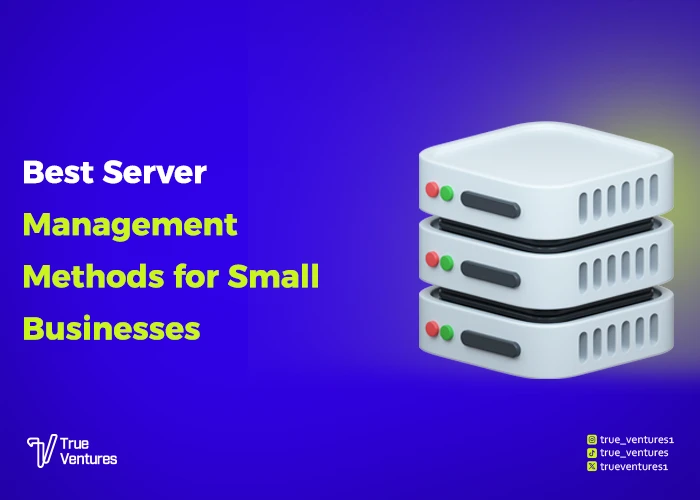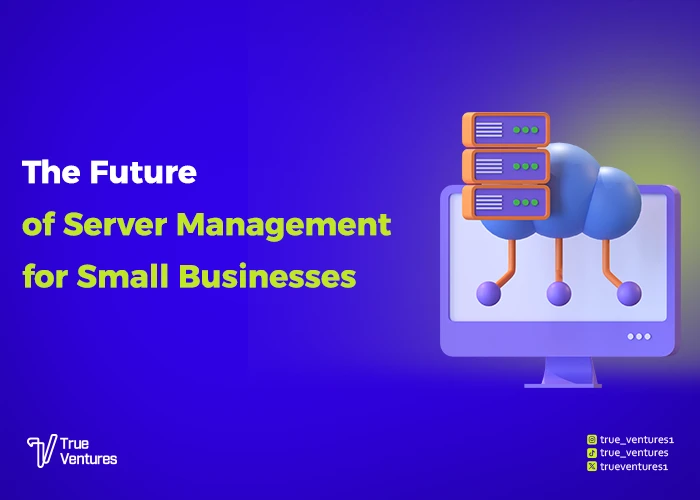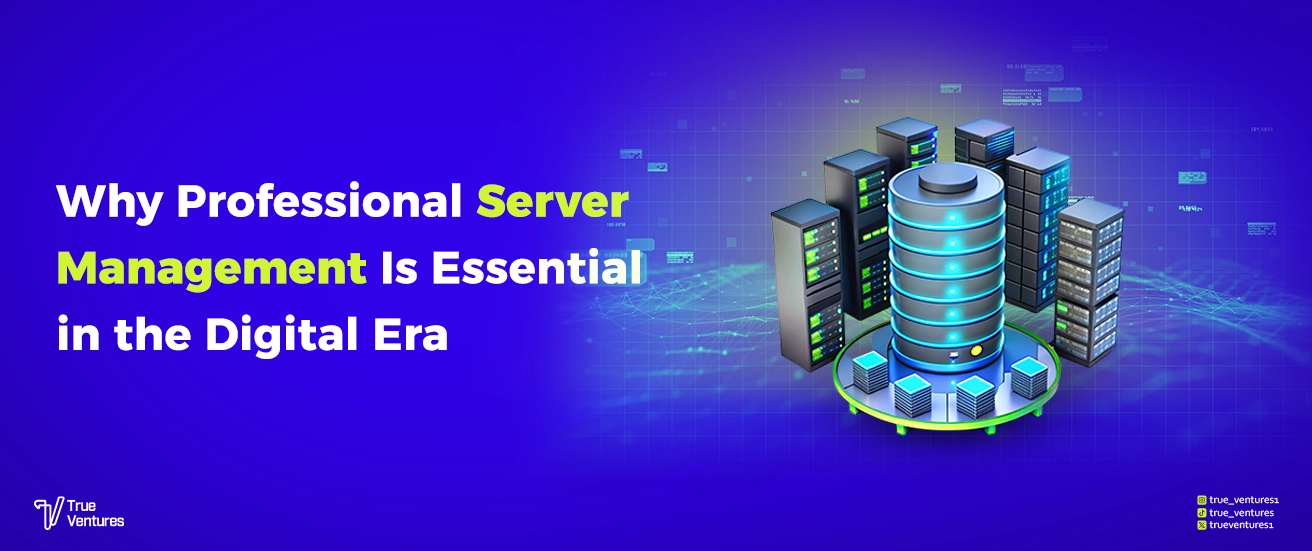Discover the details of our Server Management Service now.
Professional Server Management for High Security & Stability November 19, 2025
In today’s fast-paced digital transformation, reliable server management is no longer optional—it’s the backbone of every modern business. Servers power critical operations, from secure data storage and smooth customer interactions to running essential applications and services. When the infrastructure fails, the consequences can be severe: unexpected downtime, data loss, or even devastating cybersecurity breaches.
This is where professional server management services come in. It’s not just about monitoring hardware; it’s a strategic approach that ensures stability, optimal performance, and protection against evolving threats. By implementing proactive maintenance and the latest technologies, expert management guarantees systems remain secure, efficient, and aligned with business goals.
Don’t let technical issues disrupt your growth. Start today with our Server Management Service and experience hassle-free operations, maximum uptime, and robust security.
Discover how our solution Server Management Service keeps your business running at peak performance.
What Is Server Management and Why Do Small Businesses Need It?
Server management refers to the complete process of setting up, configuring, monitoring, and maintaining servers to ensure they run efficiently and securely. The primary goal is to keep your server operating without interruptions while protecting it from potential risks such as hardware failures, unexpected downtime, or cyberattacks.
Unlike large enterprises that typically have dedicated IT teams to handle these tasks, most small businesses and startups lack the resources to build an in-house technical department. This is where managed server services come in. Partnering with an external provider allows small businesses to access expert support, proactive monitoring, and reliable security measures—without the high cost and hassle of hiring a full-time team.
The key difference between server management for large organizations and smaller companies lies in scale and complexity. Big corporations require advanced solutions and extensive infrastructure, while small businesses prioritize flexibility, cost-effectiveness, and solutions that guarantee uptime and data security with minimal overhead.
Key Challenges Small Businesses Face in Managing Web Servers
For many small businesses, running and maintaining web servers comes with a unique set of obstacles. Budget limitations are often the first hurdle; building a reliable infrastructure can require significant investment that doesn’t always fit within tight financial plans. Another critical issue is limited technical expertise. Most small businesses prioritize their core operations and typically lack a dedicated IT team to handle server administration and troubleshooting. Finally, there’s the pressing need for continuous uptime. Even a brief service interruption—just a few minutes—can lead to lost customers, missed transactions, and a damaged reputation.
Tip: To reduce these risks, many companies turn to managed hosting solutions or cloud-based services, which offer scalability and expert support without the burden of maintaining physical servers.
To ensure your software is fully reliable before deployment,
read our article: Professional Software Testing to Ensure Quality & Performance
Best Strategies for Managing Servers in Small Businesses

Managing servers efficiently is critical for small businesses to ensure stability and security. Here are proven methods to help you maintain seamless operations:
-
Partner with a Managed Server Service
Outsourcing to a managed service provider is one of the most effective options. These experts handle regular maintenance, apply security updates, and monitor performance 24/7. This proactive approach minimizes downtime and ensures reliable operations without requiring an in-house IT team.
-
Choose Dedicated Managed Servers for Sensitive Workloads
If your business deals with large datasets or sensitive applications, dedicated managed servers offer higher security and consistent performance. Unlike shared servers, they reduce risks of breaches and resource bottlenecks, making them ideal for critical systems.
-
Implement Automated Monitoring Tools
Modern monitoring solutions allow real-time tracking of server performance. With instant alerts for potential issues, businesses can take quick action before problems escalate, reducing operational risks.
-
Establish Backup and Disaster Recovery Plans
Never overlook the importance of regular backups and a solid disaster recovery strategy. These safeguards ensure business continuity even during unexpected failures or cyberattacks, protecting your data and customer trust.
Should You Manage Servers In-House or Rely on an External Provider?
When deciding between in-house server management and outsourcing, the right choice depends on your resources and business needs.
In-House Management gives you full control over your infrastructure and allows quick responses to technical issues. However, this approach comes with high costs and demands specialized expertise, which can be a challenge for small and medium-sized businesses.
Outsourcing to a Service Provider, on the other hand, is often the smarter option for growing companies. It’s cost-effective, provides 24/7 expert support, and typically includes flexible plans that adapt to your budget and performance requirements.
Why Outsourcing Makes Sense for Small Businesses
Instead of focusing time and budget on maintaining servers, you can channel those resources into growth. A professional server management service ensures maximum uptime, strong security, and continuous optimization—all without the headaches of hiring and training an internal team.
Start Server Management Service today with our flexible server management plans and stay focused on scaling your business while we handle the tech.
Key Tips for Choosing the Right Server Management Service
- Verify Provider Expertise – Experienced companies deliver faster, more secure solutions.
- Prioritize Security – Ensure strong protection against cyber threats.
- 24/7 Technical Support – Round-the-clock assistance is crucial for minimizing downtime.
- Look for Flexible Plans – Choose a provider that offers packages tailored to your budget.
- Check for Regular Updates & Maintenance – Proactive maintenance keeps systems running smoothly.
The Future of Server Management: Automation & AI

Advances in automation and artificial intelligence are transforming server management into a smarter, more efficient process. Automated workflows reduce human errors and accelerate maintenance, while AI-driven systems can predict issues before they occur—giving businesses a significant competitive advantage.
For an integrated system that supports your server operations, check
our article: Smart Business Systems to Boost Efficiency & Productivity
How Small Businesses Can Benefit
- Cloud-Based Automated Solutions: Shift from physical servers to managed cloud platforms for continuous updates and lower maintenance.
- AI Monitoring Tools: Leverage AI analytics to detect and prevent issues before they affect your operations.
- Cost Optimization: Automation and AI reduce the need for large IT teams and improve resource utilization, saving your business money.
- Enhanced Security: Intelligent systems can identify and respond to threats faster than humans, safeguarding your data against cyberattacks.
Bottom Line: Server Management Is Essential
Server management isn’t optional—it’s critical for data security and business continuity. Partner with a reliable service provider to ensure stability, performance, and peace of mind.
Ready to simplify your IT operations?
Contact us Server Management Service today to find the perfect server management plan for your business.



